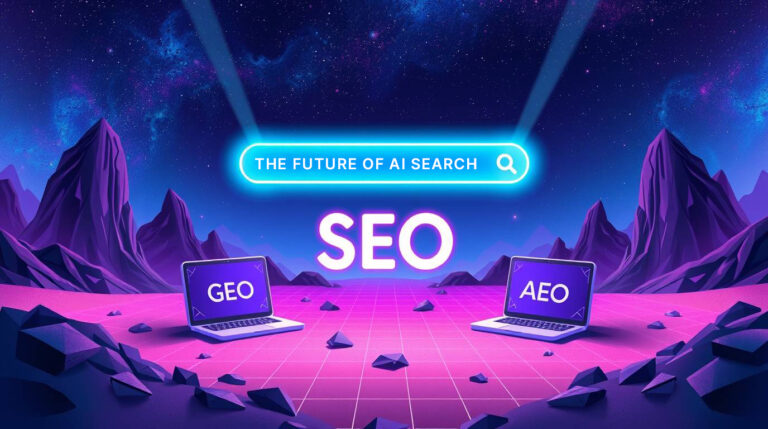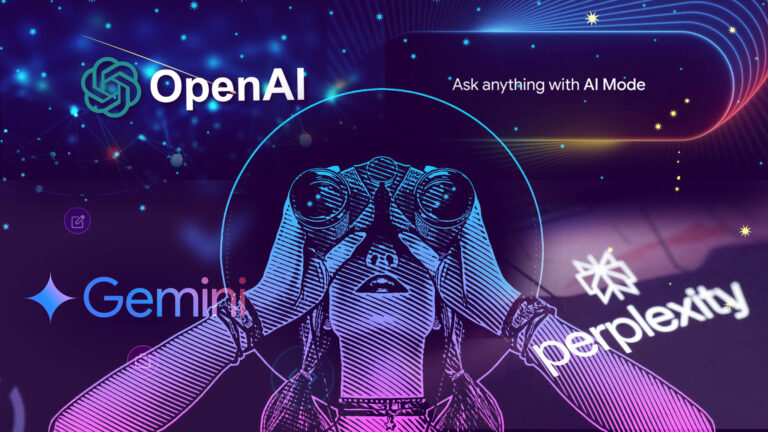Search has always been evolving, but the next leap is bigger than most businesses realise.
We’re moving from search engines to answer engines (like Google AI Overviews and Perplexity). And now, we’re heading into the age of AI agents, digital assistants that don’t just answer your queries but take action on your behalf.
For B2B businesses, this isn’t just a tech trend. It’s a fundamental shift in how your customers will find, assess, and engage with your brand. If your digital presence isn’t prepared, you risk being left out of the conversation entirely.
What are AI agents?
AI agents are proactive digital assistants that use natural language and task automation to help users achieve complex goals.
Instead of typing “best IT services Sydney” into Google, a business leader could ask an AI agent:
“Find me three IT consultancies in Sydney with cloud migration expertise, check their case studies, book an intro call, and draft an email summary.”
Agents like these are already emerging:
- ChatGPT with plugins – can browse the web, read reviews, and even connect to calendars.
- Perplexity Pro – evolving into a research assistant for professional users.
- Custom AI assistants – built into CRMs and SaaS platforms to automate sourcing and vendor selection.
The key difference? AI agents cut out the middle steps.
Why this matters for visibility
If traditional SEO was about being visible on page one, and AEO was about being cited in AI answers, agent-driven search is about being actionable.
Your business could be invisible if:
- Your services aren’t clearly described in machine-readable formats.
- Your content lacks the depth to differentiate you from competitors.
- You don’t provide signals of trust (testimonials, case studies, authority).
As MIT Sloan notes, digital ecosystems grow when businesses integrate into users’ workflows. AI agents are about to become one of those workflows.
Introducing AAIO: Agentic AI Optimisation
A new term is emerging ‘Agentic AI Optimisation (AAIO)’. Think of it as the next step beyond GEO and AEO.
- GEO makes your content AI-friendly.
- AEO makes your content usable as an answer.
- AAIO makes your content actionable for agents.
That means ensuring your business can be:
- Found – agents can locate and understand your services.
- Selected – your content demonstrates enough trust and authority.
- Acted upon – booking, contacting, or purchasing is frictionless.
How to prepare your business for agent-driven search
1. Structure your data
Agents need structured inputs. That means:
- Using schema markup for services, FAQs, and reviews.
- Ensuring product or service pages include metadata that clearly describes what you offer.
- Publishing structured case studies with industry, challenge, solution, and outcome.
2. Prioritise clarity and context
Agents won’t “interpret” vague copy. Be explicit:
- Who you serve (“mid-sized consultancies in Sydney”).
- What you deliver (“cloud migration, cyber security, ongoing support”).
- How you do it (methodology, outcomes, testimonials).
3. Enable integrations
APIs and connectors aren’t just for developers. They’ll become a trust signal for agents. If your services can be accessed or integrated programmatically (think booking, data exchange, CRM sync), you’re more likely to be selected.
4. Optimise for long-tail, task-oriented queries
Agents are being trained on natural, conversational tasks. Optimise for them:
- “How do I reduce downtime during an office IT migration?”
- “Who are the top engineering consultants for government projects?”
Create content that answers these, not just generic “what is” posts.
5. Build trust signals everywhere
Agents will filter based on reputation and authority. Make sure you:
- Publish detailed case studies
- Collect and display verified reviews
- Earn authoritative backlinks from industry sources
Example scenario: Professional services firm
Imagine you run a Sydney-based accounting firm specialising in CFO services for creative agencies.
- Today: A prospective client Googles “accountant for creative agencies,” scrolls through results, and clicks on your site.
- Tomorrow: An AI agent is asked: “Find me an accountant in Sydney with CFO services for agencies over 10 staff, show me two testimonials, and book a call.”
If your website clearly lists “CFO services for creative agencies with 10+ staff,” includes schema markup for services and reviews, and integrates a booking system, you’re far more likely to be recommended – and even booked – by the AI agent.
Pitfalls to avoid
- Generic service descriptions – “Accounting for businesses” won’t get you picked; “CFO services for creative agencies 10+ staff” will.
- No structured data – without schema, agents may skip your site entirely.
- Ignoring integrations – if booking a call requires five clicks, the agent won’t bother.
- Thin content – if your competitors publish detailed case studies and you don’t, they’ll win the citation.
The future of discovery
Agent-driven search is still emerging, but the pace is fast. As arXiv research on Agentic AI notes, proactive AI systems are moving from answering questions to performing multi-step tasks.
That means visibility will no longer be about just showing up, it will be about being usable in the flow of action.
The bottom line
The web is entering the age of AI agents. If your website isn’t structured, clear, and action-ready, you risk being left out of tomorrow’s digital economy.
At Redfox Digital, we help B2B businesses future-proof their digital ecosystems, making them not just visible today, but actionable tomorrow.
Want to know if your business is agent-ready? Let’s talk: https://www.redfox.digital/contact


